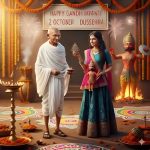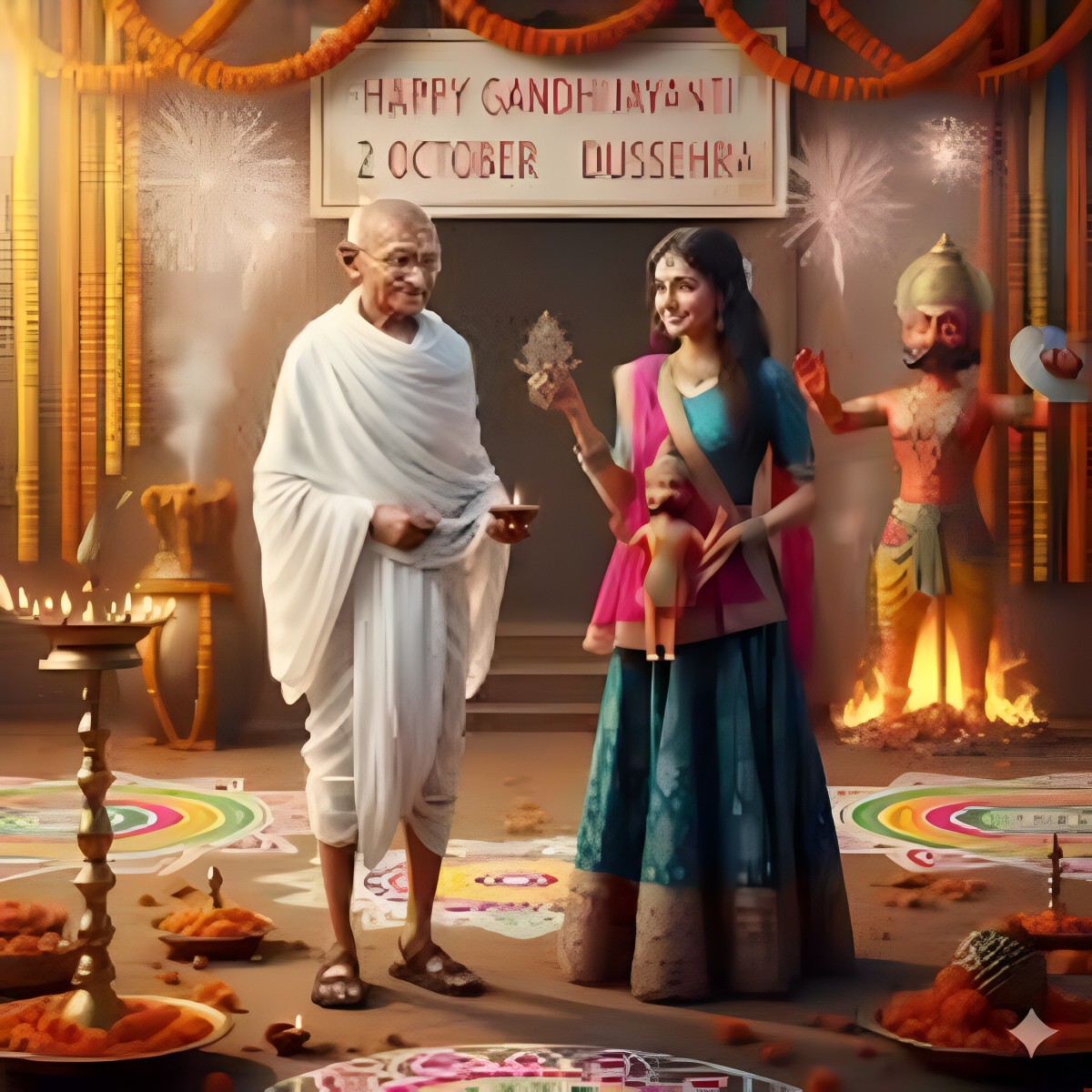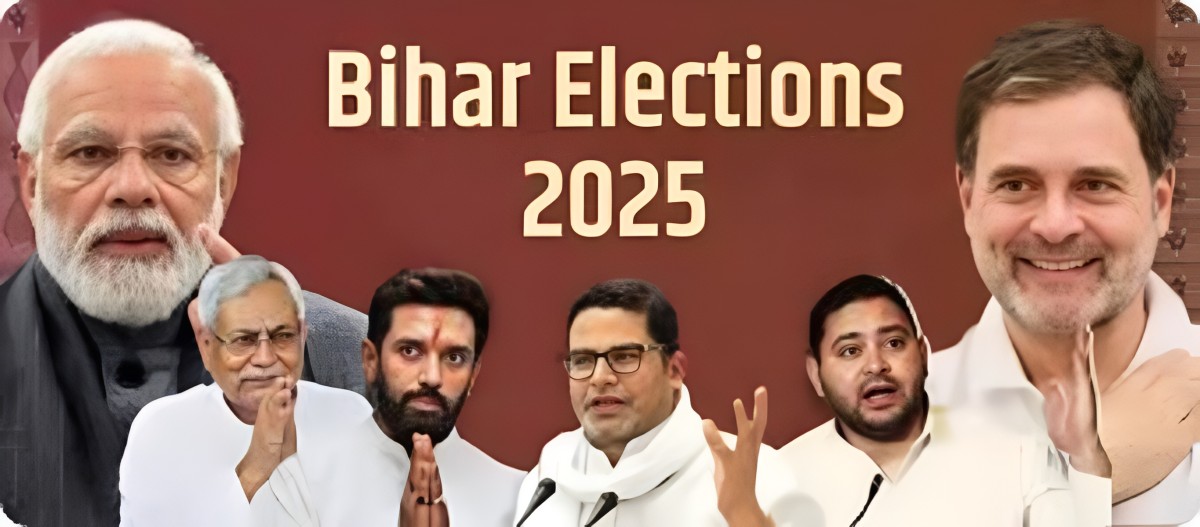As October 2025 unfolds, India finds itself celebrating two of its most powerful and meaningful occasions — Gandhi Jayanti on October 2nd, and Dussehra, which falls on October 12th this year. Although these two events come from different historical and cultural backgrounds, they are united by a common message: the triumph of good over evil, of truth over falsehood, and of righteousness over injustice.
In a world often clouded by conflict, division, and moral confusion, revisiting the values behind these festivals feels not only timely but necessary.
Also Read:Cloudburst in Dehradun: What It Reveals About Rising Climate Risks
Gandhi Jayanti: Honoring the Father of the Nation
Gandhi Jayanti marks the birth anniversary of Mahatma Gandhi, born on October 2, 1869, in Porbandar, Gujarat. Revered as the Father of the Nation, Gandhi led India’s struggle for independence through a philosophy grounded in non-violence (Ahimsa) and truth (Satya).
Rather than resorting to violence, Gandhi showed that real change could be achieved through peaceful resistance, self-discipline, and moral courage. His tools were fasting, marches, prayer, and civil disobedience, not weapons or hate. Gandhi believed that inner purity was essential to outer change.
In today’s times, when society often leans towards aggression to resolve conflicts, his teachings remain a guiding light. As we commemorate his 156th birth anniversary in 2025, the need to embrace his values is more urgent than ever.
Dussehra: The Festival of Victory
Just days after Gandhi Jayanti, we celebrate Dussehra (also called Vijayadashami) — a major Hindu festival symbolizing the victory of Lord Rama over the demon king Ravana. It is a story from the Ramayana, where Rama, an avatar of Lord Vishnu, defeats Ravana, who had abducted his wife Sita.
Across India, Dussehra is celebrated by burning effigies of Ravana, showcasing dramatic performances of the Ramayana (Ramlila), and reminding us of the importance of conquering our inner demons — ego, anger, greed, and arrogance.
In the eastern parts of India, Dussehra also marks the end of Durga Puja, where Goddess Durga defeats the demon Mahishasura, again highlighting the same eternal truth: evil, no matter how powerful, eventually falls before righteousness.
⚖️ Gandhi and Rama 2025: A Shared Message
Though separated by centuries and contexts, Mahatma Gandhi and Lord Rama symbolize the moral backbone of Indian thought. Rama fought Ravana with courage and integrity; Gandhi resisted the British Empire with non-violence and truth.
Both figures stood for:
- Dharma (righteousness)
- Respect for humanity
- Discipline and humility
- Courage to stand for truth
Gandhi himself considered Rama as a personal ideal, often chanting “Raghupati Raghav Raja Ram,” which became the anthem of the freedom struggle. He believed that the concept of “Ram Rajya” (the rule of Lord Rama) represented a society based on justice, peace, and equality.
Victory of Goodness in Today’s World
In 2025, the world faces many modern “Ravanas”:
- Violence and wars
- Environmental destruction
- Corruption and injustice
- Digital misinformation and hate speech
To fight these evils, we need not swords or arrows, but Gandhian tools: patience, awareness, empathy, non-violent activism, and collective moral responsibility.
Imagine combining the valor of Rama with the wisdom of Gandhi. Together, they teach us that goodness is not passive — it requires action, bravery, and sacrifice.
A Message for the Youth
To students and young people, these festivals are more than rituals — they are lessons in leadership and character. Lighting fireworks on Dussehra or attending prayer meetings on Gandhi Jayanti is only symbolic unless we also light up our minds with knowledge and hearts with compassion.
Small actions can reflect these values:
- Helping clean your community (Swachh Bharat).
- Standing up against bullying or injustice.
- Being truthful, even when it’s hard.
- Practicing forgiveness and empathy.
Conclusion: A Unified Celebration
As we celebrate Gandhi Jayanti and Dussehra in October 2025, let us remember that the victory of goodness is not a once-a-year event — it is a daily commitment. Whether we wear khadi in Gandhi’s honor or burn Ravana’s effigy, the deeper meaning lies in how we live our lives, how we treat others, and how we stand up for what is right.
In a divided world, may we unite under these timeless ideals — and become warriors not of war, but of peace, truth, and justice.
“Truth alone will endure; all the rest will be swept away before the tide of time.”
— Mahatma Gandhi
Also Read : Nitin Gadkari Major Warning After Operation Sindoor: ‘World War III Could Erupt Anytime











